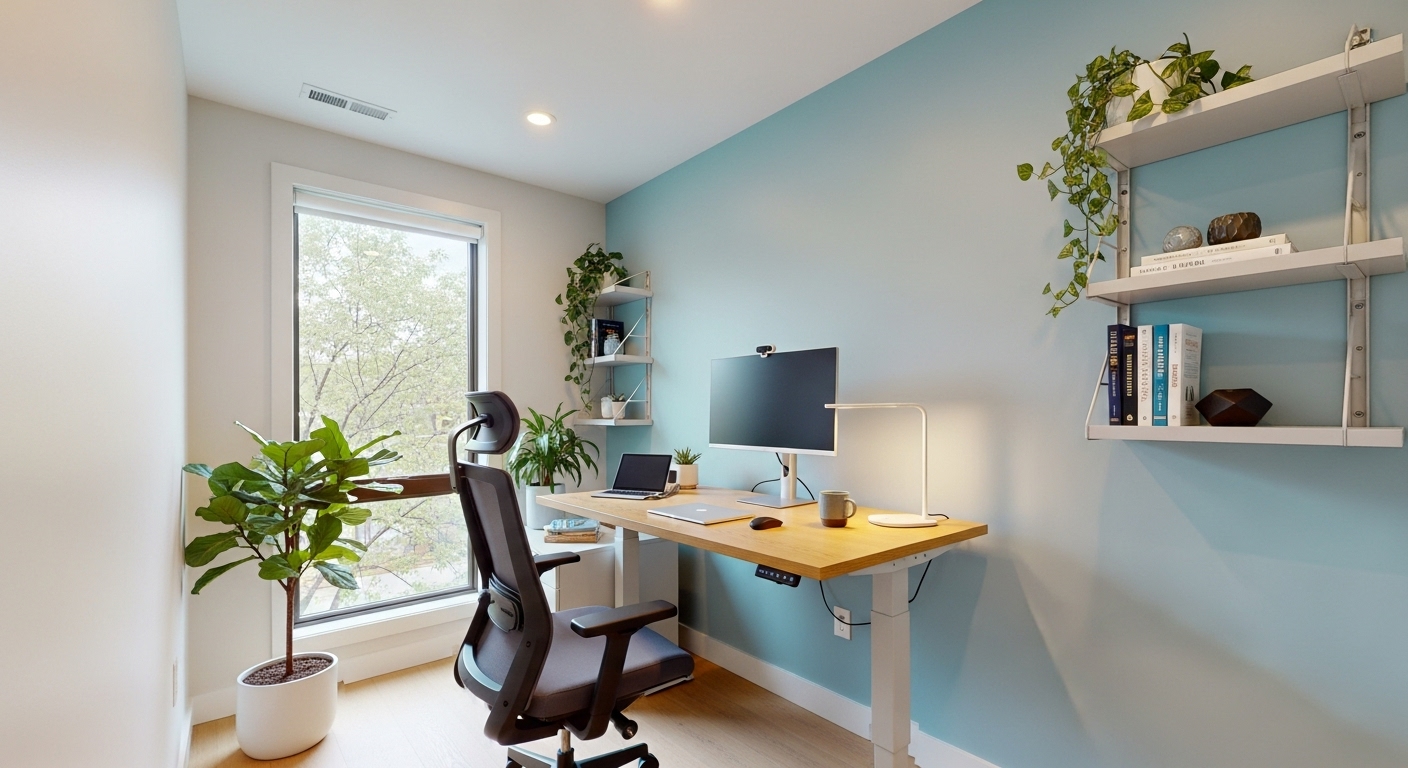The allure of freelancing is often painted with broad strokes of freedom and flexibility, but the reality for many is a volatile cycle of feast and famine. One month, you’re overwhelmed with high-paying projects; the next, you’re anxiously checking your inbox, wondering where the next gig will come from. This income rollercoaster isn’t a necessary evil; it’s a symptom of a flawed approach. The secret to a stable, thriving freelance career isn’t a single silver bullet or a viral marketing trick. Instead, it lies in the powerful principle of compounding. Just as small, regular investments grow into a substantial fortune, small, consistent daily habits build unstoppable momentum in your business. This guide moves beyond the basics of finding your first client and explores the core strategic habits that separate struggling freelancers from enduringly successful ones. We will deconstruct the daily practices in prospecting, financial discipline, skill enhancement, and personal branding that, when combined, create a career that is not only profitable but resilient and fulfilling for the long term.
Beyond the Project: The Art of Continuous Prospecting
The most common mistake freelancers make is treating marketing like a faucet—turning it on when work dries up and shutting it off when they’re busy. This creates the feast-or-famine cycle. Truly successful freelancers treat client prospecting not as a desperate measure, but as a quiet, continuous, daily habit. This isn’t about spending hours on cold outreach; it’s about dedicating 30 to 60 minutes each day to activities that nurture your pipeline. This might involve engaging thoughtfully with potential clients’ content on LinkedIn, sharing a valuable insight, or sending a highly personalized, low-pressure email to a past client to check in. It could mean scanning specialized job boards for ideal opportunities or contributing to an online community where your target clients congregate. The key is consistency. By planting these seeds daily, you create a constant flow of opportunities that mature over weeks and months. When one major project ends, you aren’t starting your search from a standstill; you have a warm pipeline of conversations and possibilities already in motion. This habit transforms marketing from a reactive, stressful task into a proactive, low-effort system that provides a critical safety net for your business, ensuring you’re never caught off guard by a sudden lack of work.
The Profit-First Principle for One: Automating Financial Discipline
Financial anxiety is a leading cause of freelancer burnout. Variable income can make it incredibly difficult to budget, save, and pay yourself reliably. The habit that counters this chaos is adopting a system of immediate, automated allocation. Inspired by the ‘Profit First’ methodology, this practice involves creating separate bank accounts for different financial purposes. Every time a client payment lands in your main business account, you immediately—as a non-negotiable habit—distribute the funds into designated sub-accounts: typically, one for Profit (your reward as the business owner), one for Taxes (setting aside a percentage to avoid future shock), one for Operating Expenses (software, marketing costs), and one for Owner’s Compensation (your consistent salary). The percentages will vary based on your business and location, but the discipline remains the same. By paying your business (Profit) and your future obligations (Taxes) first, you are forced to run your operations on what remains. This simple but powerful habit instills immense financial discipline. It removes the guesswork and emotion from your finances, transforming unpredictable revenue into a structured, reliable system. Over time, this compounding habit not only builds a significant tax buffer and profit reserve but also gives you a crystal-clear view of your business’s true financial health, allowing you to make smarter decisions about rates and expenses.
From Doer to Strategist: The Daily Practice of Upskilling
In a competitive market, skills that are valuable today can become commoditized tomorrow. Relying solely on your current expertise is a path to stagnation and diminishing rates. The most successful freelancers combat this by adopting a daily habit of value escalation. This means dedicating a small, protected block of time each day—even just 30 minutes—to deliberate learning. This isn’t just about sharpening your core craft. It’s about building adjacent skills that elevate your offering from a simple service to a strategic solution. For a writer, this might mean learning about SEO and content distribution. For a developer, it could be studying user experience (UX) design principles or project management frameworks. For a designer, it could be learning about marketing funnels and conversion rate optimization. This daily investment compounds your value proposition. You gradually transition from being a ‘task-taker’ who executes instructions to a ‘trusted advisor’ who can contribute to a client’s broader strategic goals. This shift allows you to command higher rates, engage in more fulfilling work, and build deeper, more resilient client relationships. This habit is your defense against commoditization and your engine for long-term career growth.
Automate or Stagnate: Building Your Personal Operations Manual
Freelancers are often the CEO, CFO, project manager, and intern of their own one-person company. Without systems, this leads to immense cognitive load and wasted time reinventing the wheel for every new client or project. The compounding habit to counteract this is relentless systemization. It’s the practice of constantly asking, “How can I make this task easier, faster, or automated the next time I do it?” Every time you write a proposal, save it as a template. Every time you onboard a new client, document the steps in a checklist. Use tools to automate invoicing, payment reminders, and scheduling. Create canned email responses for common inquiries. This process gradually builds your ‘Personal Operations Manual’—a set of templates, processes, and automations that handle the repeatable, low-value tasks in your business. This isn’t about becoming a robot; it’s about liberating your most valuable resource: your mental energy. By systemizing the mundane, you free up more time and focus for the high-impact, creative, and strategic work that clients actually pay you for. Each small system you build is a compounding asset that pays you back in time and efficiency for years to come.
Proactive Updates and The Art of Managing Expectations
Client relationships rarely fail because of a lack of skill; they fail because of a lack of communication. Assumptions, missed deadlines, and scope creep are almost always rooted in poor or reactive communication. The antidote is the habit of strategic, proactive communication. This means you, the freelancer, own the flow of information. It starts with setting clear expectations in your contract and kickoff call. But more importantly, it continues with a consistent rhythm of updates throughout the project. A simple habit like sending a concise ‘Weekly Status Update’ email every Friday can work wonders. This email should briefly outline what was completed, what’s next on the agenda, and flag any potential questions or roadblocks. This practice does two things: it demonstrates professionalism and builds immense trust by making the client feel informed and in control. It also preemptively surfaces issues before they can escalate into major problems. When clients never have to wonder about the status of their project, their confidence in you skyrockets. This compounding habit of proactive communication is what turns a one-time project into a long-term retainer and a satisfied client into a vocal evangelist for your business.
Content as a Magnet: The Daily Ritual of Building Authority
The final compounding habit shifts you from hunting for clients to attracting them. This is the practice of consistently creating and sharing content that demonstrates your expertise. This doesn’t mean you need to launch a massive blog or a slick YouTube channel overnight. It’s a small, daily ritual. It could be writing a 300-word post on your blog, sharing a detailed case study of a past project, or simply posting a valuable tip or insight on LinkedIn or the social platform where your ideal clients are active. The goal is not to go viral, but to build a library of authority over time. Each piece of content is an asset that works for you 24/7, showcasing your knowledge and problem-solving ability. Over months and years, this consistent effort compounds. Your online presence grows, your authority solidifies, and you begin to receive inbound inquiries from ideal clients who are already convinced of your value before you’ve even spoken. This habit flips the power dynamic, allowing you to be more selective with projects and command premium fees based on your established expertise rather than just your availability.
The journey to a successful freelance career is not a sprint; it’s a marathon built on the power of compounding interest. It’s not about finding one big client or landing one perfect project. It’s about the relentless, daily execution of small, strategic habits that build on each other over time. By committing to continuous prospecting, you eliminate the famine. By automating your financial discipline, you build a fortress of stability. Through the daily practice of upskilling, you escape the trap of commoditization and steadily increase your value. By systemizing your operations, you reclaim your time and mental energy for what truly matters. With proactive communication, you build unshakeable client trust, and by consistently sharing your expertise, you create a magnet for ideal opportunities. Each habit, on its own, is a minor adjustment. But compounded together, day after day, they create a powerful flywheel that propels your freelance business forward with unstoppable momentum. The ultimate freedom in freelancing isn’t just working from anywhere; it’s the freedom that comes from building a resilient, predictable, and deeply rewarding career by design.





